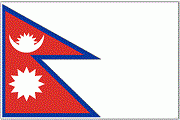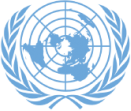Statement by His Excellency Mr. Amrit Bahadur Rai, Ambassador and Permanent Representative of Nepal to the United Nations at the High-level Side Event on “How changing availability of water from ice and snow will impact our societies?”
22 September 2021
10AM -12PM
His Excellency Mr. Sirojiddin Muhriddin, Foreign Minister of Tajikistan
His Excellency Shah Mahmood Qureshi, Foreign Minister of Pakistan
His Excellency Peter Szijjiarto, Foreign Minister of Hungary
Mr. Liu Zhenmin, Under-Secretary-General for Economic and Social Affairs
Distinguished delegates,
At the outset, Nepal feels privileged and delighted to be one of the cosponsors of this High-level side event on this important topic.
As ice and snow in the world are melting at an alarming rate, today’s event is indeed very important for the mountainous countries like Nepal and the world community as a whole.
Water is crucial for sustaining life on earth. It is at the core of sustainable development and is critical for socio-economic development, energy and food production, and healthy ecosystems.
It is even more important in light of COVID-19 pandemic, as access to safe drinking water, adequate sanitation and hygiene are key to protecting human health.
However, billions of people still lack access to safely managed drinking water. The situation is more alarming in the poorest and most vulnerable countries.
Global warming and climate change added further stress to the water system and has adversely impacted our societies, entire ecology, and environment.
Excellencies,
Nepal is facing adverse impact of climate change despite its negligible share in GHG emission.
Our mountains are melting, glacial lakes are retreating.
According to a report by ICIMOD, one-third of the glaciers in Hindu Kush Himalaya region will melt away by the end of this century even with the temperature rise of 1.5-degrees above pre-industrial level.
The recent IPCC report also highlights the melting of mountain and polar glaciers for decades.
This has led to negative impacts on food security, water resources, water quality, livelihoods, health and well-being of our people.
We need to do more in cutting GHG emissions. Nepal is committed to deliver its part. We must preserve the mountain ecosystem to address the looming water crisis.
The Paris Agreement must be the guiding document towards this end.
Equally important will be the access to technology and financial assistance to mountainous countries to adopt integrated water management systems and mitigate the effect of increasing water induced hazards.
Excellencies,
It is a race of human survival and health of the planet against our own destructive economic and industrial patterns and our unsustainable lifestyles.
We must turn the way we do our business transforming from fossil fuel to renewable energy to curb the GHG emissions in a drastic way.
In conclusion, we must strengthen collaborations at national, regional, and global levels to save our mountain ecosystems, which provide fresh water to billions of people.
I thank you for your attention!


